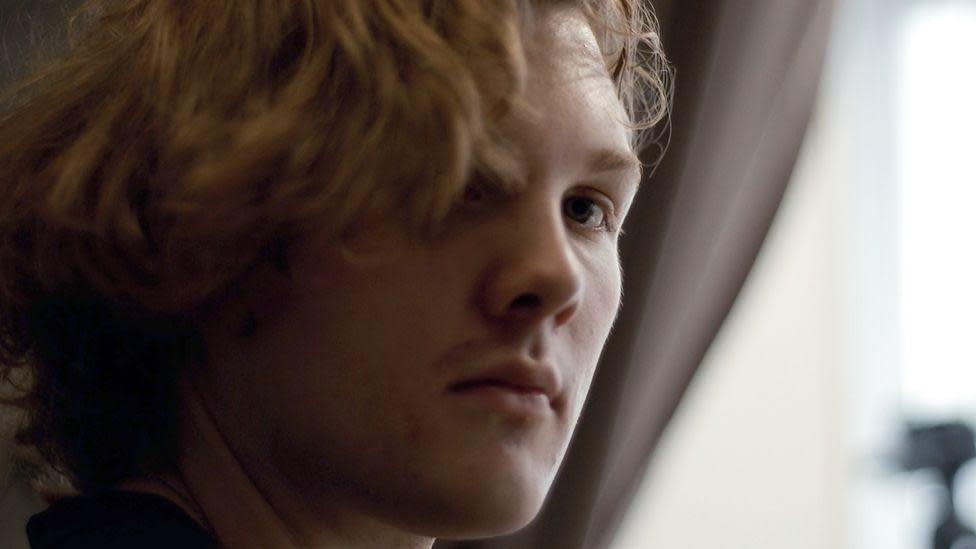Tricked into Conversion Therapy in Russia for Being Trans
On a remote farm in Siberia, a chilling encounter unfolded for Ada, a 23-year-old transgender woman. A man handed her a knife and pointed to a pig, instructing her, “Cut it off.” This stark moment was meant to symbolize the harsh reality of conversion therapy, a practice Ada had been deceived into undergoing after coming out to her family.
In the summer of 2021, Ada was led to believe she was accompanying a relative for heart surgery in Novosibirsk. Upon arrival, a man met them at the airport, and after a long drive, the car abruptly stopped. Her relative exited the vehicle, leaving Ada alone with the driver, who demanded her smartwatch and phone. “Now we’re going to cure you of your perversion,” he declared, revealing the sinister truth of her situation.
It was only when a parcel of warm clothes arrived weeks later that Ada realized she was not there for a short visit. She was forced to take testosterone, engage in prayer, and perform manual labor, including chopping wood. Faced with the pig, she experienced a panic attack and could not comply with the man’s orders. After nine harrowing months, Ada managed to escape, using a forgotten phone to call the police. Officers arrived and confirmed she was being held against her will.
The center denied any involvement in conversion therapy when contacted by the BBC, and Ada’s relative did not respond to inquiries. Her ordeal marked a low point in a lifelong struggle against societal and familial rejection, compounded by Russia’s increasingly oppressive laws against the LGBTQ+ community.
According to UN independent expert Graeme Reid, transgender individuals in Russia have seen their human rights systematically eroded as part of a broader political strategy targeting vulnerable minorities. Following the enactment of a law banning gender reassignment surgery, transgender Russians have been stripped of their basic rights, including the ability to change personal details on official documents. Ada was among the last to have her name legally changed before the law took effect in July 2023.
Since the full-scale invasion of Ukraine, President Vladimir Putin has intensified his rhetoric against the West and LGBTQ+ rights, framing his actions as a defense of traditional Russian values. At a cultural forum in St. Petersburg, he dismissed transgender individuals as “transformers or trans-something.” In late 2023, Russia’s justice ministry labeled the “international LGBT movement” an extremist organization, despite its non-existence.
The implications of this ruling are severe; anyone deemed to support “extremist activity” could face up to 12 years in prison. Even displaying a rainbow flag can lead to fines and potential imprisonment for repeat offenses. In one of the first prosecutions under the new law, two young individuals were brought to court for running a bar that served the LGBTQ+ community.
After her escape, Ada found refuge in a small flat in Moscow, where she offered support to other transgender individuals. However, the oppressive new laws forced her to leave Russia. “I couldn’t stay any more… I had to leave Russia,” she said, now residing in Europe.
Francis, who fled Russia in 2018, faces a similar fate. The new laws mean he may never return home. Despite having transitioned and built a family, local authorities intervened, taking away his adopted children after he began the process of transitioning. He and his family now live in Spain, where he has found a sense of belonging.
Ally, who identifies as non-binary, left Russia in 2022. Although their departure was politically motivated, the pressures on the LGBTQ+ community weighed heavily on them. Ally recalls a moment of joy when someone couldn’t determine their gender, a stark contrast to the challenges faced in Russia. Now living in Georgia, Ally has undergone a mastectomy, but the stigma remains, especially with family members unaware of their transition.
Both Francis and Ally struggle with the consequences of their past, as their documents still reflect their former identities, complicating everyday life. Despite these challenges, they find solace in their new homes, where they can express their true selves without fear of persecution.
Ada’s story, along with those of Francis and Ally, highlights the urgent need for change. The trans community in Russia seeks the freedom to express their identities without fear of violence or discrimination. “I just want people to stop having to think about how to survive,” Ada emphasizes, calling for a world where everyone can live authentically and safely.
